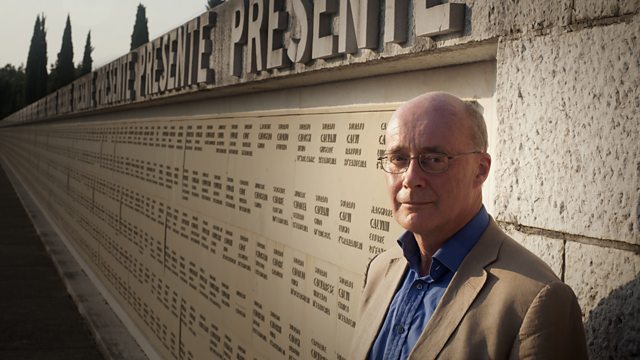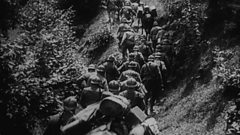
Ballots and Bullets
Series tracing the legacy of the Great War. David Reynolds looks at how the conflict gave birth to an age of turbulent mass democracy.
David Reynolds examines the intriguing paradox of the Great War - that it was not caused by profound political or ideological divisions but created them in its wake. He looks at how the conflict made politics red hot, giving birth to an age of turbulent mass democracy.
Democracy, Reynolds argues, hit postwar Europe like a big bang. He traces how, in the immediate aftermath of war, monarchies toppled, the people rose up and three iconic leaders - Vladimir Lenin, Woodrow Wilson and Benito Mussolini - emerged with competing visions of people power that polarised much of continental Europe between right and left in the 1920s and 1930s.
Britain's experience was very different. In Britain the socialist Labour Party could be absorbed into the political mainstream and the monarchy under King George V was repackaged as a symbol of the nation. For Britain, this was an era of political coalitions headed by Stanley Baldwin and Ramsay MacDonald, parliamentarians who reached for the centre ground and quietly squeezed out extremists like Oswald Mosley and charismatic politicians like Winston Churchill.
Through richly visual sequences comparing the experience of France, Italy and Britain, at locations including the battlefield of Caporetto now in Slovenia, the National Assembly in Paris and Buckingham Palace in London, this film re-examines the explosive impact of the Great War on European politics.
Last on
More episodes
Previous
Next
Clip
-
![]()
Italy's disastrous Great War
Duration: 01:36
Credits
| Role | Contributor |
|---|---|
| Presenter | David Reynolds |
| Director | Russell Barnes |
| Producer | James Evans |
| Producer | Stephanie Seabrook |
Free WW1 courses
Sign up to a free course on the Versailles Treaty with the University of Glasgow.

